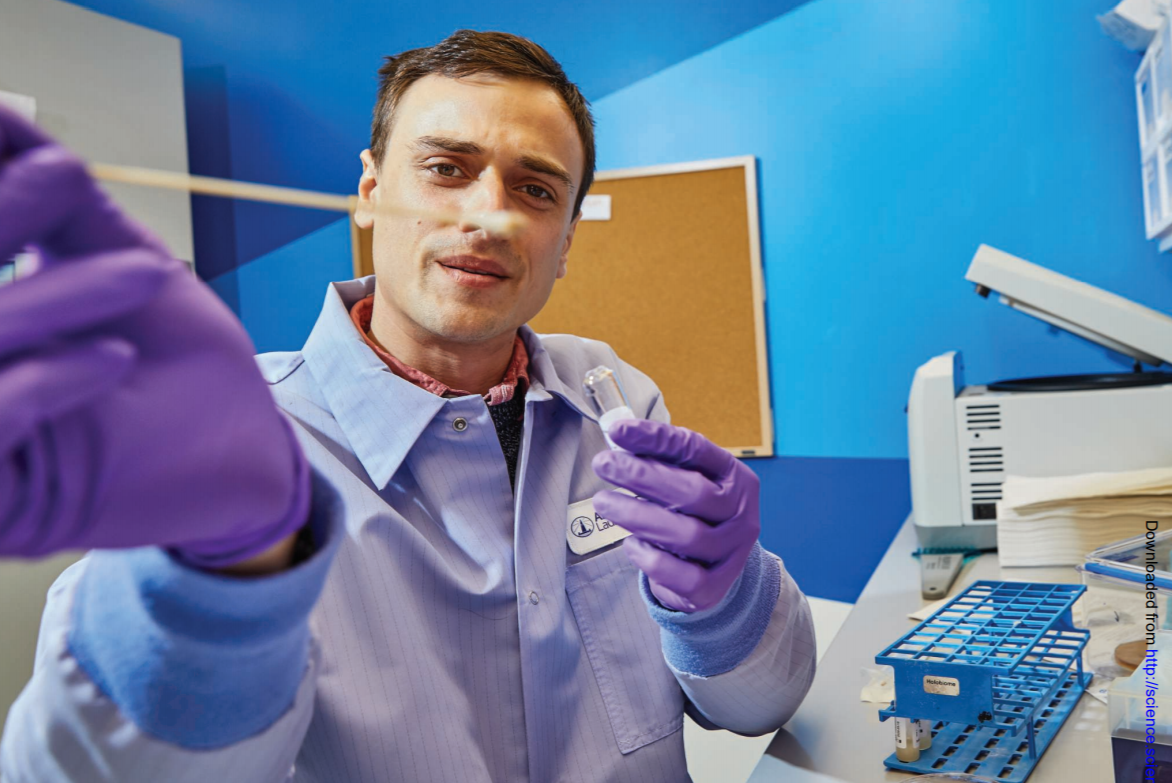每日外闻99

接着上一篇聊:
科学家们已经积累很多研究数据,有研究者表示:要知道宿主生理的一个特定方面受到肠道微生物的影响是一回事,而将这种影响屈从于我们的意愿则是另一回事。有许多公司或者科学家已经在一些志愿者身上测试了一些潜在的精神益生菌。但他们认为这种治疗还有很长的路要走,更好、更准确地理解起作用的机制将是重要的。
HOLOBIOME就没那么有耐心了。Strandwitz在2015年创立了这家公司,当时他还是东北大学Kim Lewis微生物实验室的研究生。“他非常有礼貌地告诉我,只有我在他毕业后帮他开公司,他才会加入实验室,”刘易斯回忆道。刘易斯因发现并致力于从土壤微生物中将新发现的抗生素商业化而闻名。Lewis同意了,但他认为Strandwitz要有自己的公司还需要10年甚至更长时间。刘易斯错了:他只用了4年时间。
在东北大学,Strandwitz从Gavrish那里学到了他所谓的栽培艺术,Gavrish和Lewis一起致力于分离土壤微生物。当时,只有约25%的肠道细菌在实验室里可以培养。Gavrish专攻分离和描述新的微生物物种,教Strandwitz如何使用营养成分、抗生素给生长缓慢,挑剔的细菌在培养基中生存下来。他开始追踪生长因子,以使很难在培养基中生存的物种存活下去。现在,Strandwitz说,我们培养了大约70%的已知人类肠道微生物。如果他说的是真的,那么其他实验室很难达到这个数字。
Strandwitz发现的一个生长因子是他实现创业梦想的关键。他和同事们分离出一种细菌,这种细菌无法在典型的培养基上存活,需要一种叫做-氨基丁酸(GABA)的氨基酸才能生长。GABA是一种神经递质,可以抑制大脑中的神经活动,它的失调与抑郁症和其他精神健康问题有关。
Cryan’s group has amassed scores of papers and reviews that have helped solidify the case for microbial effects on several psychological and neurological disorders. But teasing effective fixes out of those links will be difficult, Clarke says: “It is one thing to know that a particular aspect of host physiology is influenced by our gut microbes and quite another to bend this influence to our will.”
Clarke’s group collaborates and consults with many companies and has tested some potential psychobiotics for stress management in healthy volunteers. But he sees a long road to treatments. “It will be important to understand better and more precisely the mechanisms at play.”
HOLOBIOME ISN’T AS PATIENT. Strandwitz founded the company in 2015 while still a graduate student in Kim Lewis’s microbiology lab at Northeastern University. “He very politely told me that he would join the lab only if I helped him start a company once he graduated,” recalls Lewis, who is famous for discovering and working to commercialize new antibiotics from soil microbes. Lewis agreed, but he figured it would be 10 years or more before Strandwitz would have his own company. Lewis was wrong: It only took 4 years.
At Northeastern, Strandwitz learned what he calls the “art of cultivation” from Gavrish, who was working with Lewis on isolating soil microbes. At the time, only about 25% of gut bacteria could be grown in the lab. Gavrish, who specializes in isolating and describing new microbial species, taught Strandwitz to manipulate nutrients and use antibiotics to give slow-growing, picky bacteria a chance to survive in culture instead of being outcompeted by more aggressive species. He began to track down growth factors to keep recalcitrant species going. Now, Strandwitz says, “We have in culture about 70%” of the known human gut microbes. If true, it’s a figure few other labs can match.
One growth factor Strandwitz identified turned out to be the key to launching his entrepreneurial dreams. He and colleagues isolated a bacterium that couldn’t survive on typical culture media and required an amino acid called gamma-aminobutyric acid (GABA) to thrive. GABA is a neurotransmitter that inhibits neural activity in the brain, and its misregulation has been linked to depression and other mental health problems.
See you tomorrow








